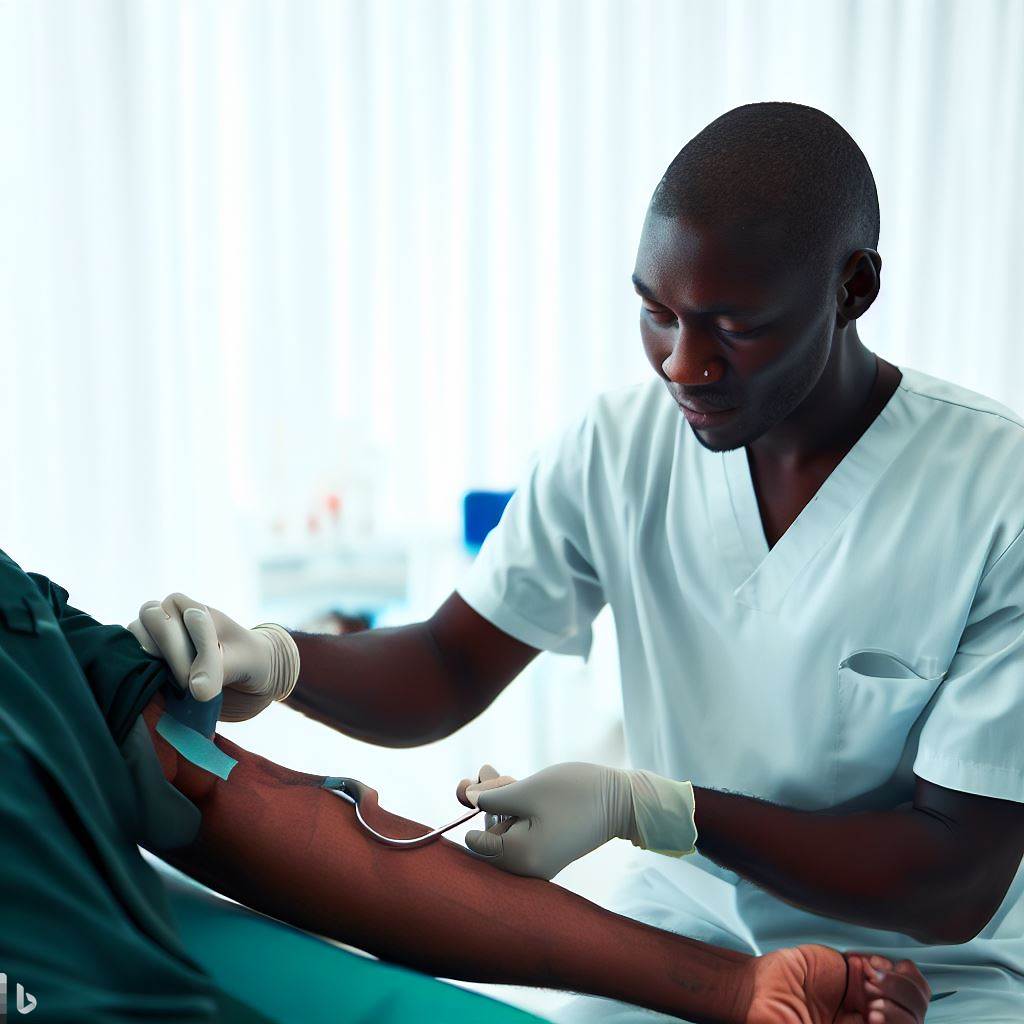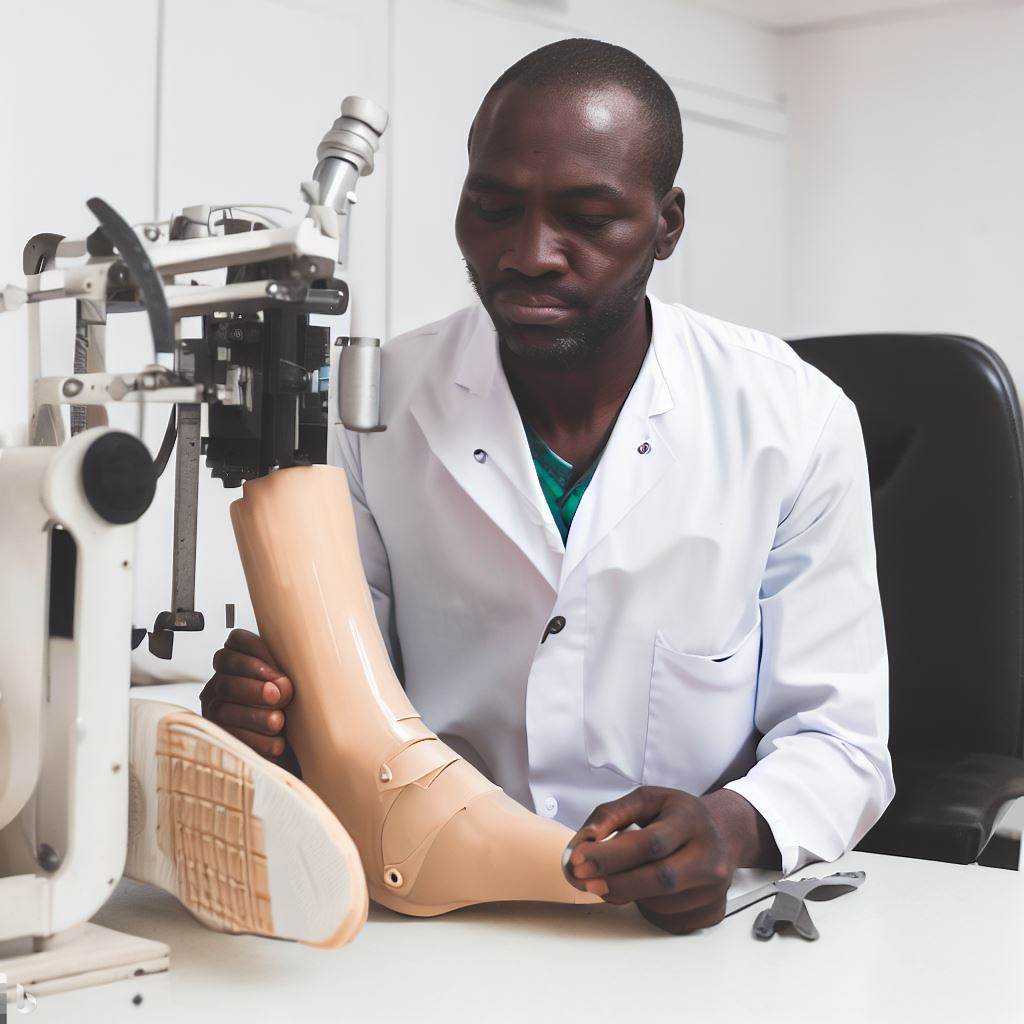Introduction
In Nigeria’s healthcare system, understanding the role of an optometrist is crucial. Eye care’s significance goes beyond just vision; it affects overall well-being.
Here, we explore the pivotal role of optometrists in safeguarding and enhancing the eye health of Nigerians.
Importance of Eye Care in Overall Healthcare
Join us as we delve into the importance of eye care in Nigeria’s healthcare landscape.
Key points:
- Optometrists’ indispensable role in Nigeria’s healthcare system.
- The impact of eye health on overall health and well-being.
- Understanding the comprehensive approach to eye care for Nigerians.
- Importance of early detection and prevention of eye-related issues.
- The significance of regular eye examinations and timely interventions.
- Addressing common eye problems prevalent in Nigeria.
- The benefits of a collaborative approach between optometrists and other healthcare professionals.
- Promoting awareness about eye health and its connection to a healthier nation.
Definition and Qualifications of an Optometrist
An optometrist is a healthcare professional who specializes in diagnosing and managing eye diseases and disorders.
They play a crucial role in preserving and improving the vision and overall eye health of individuals.
Optometrists are trained to provide primary eye care, including conducting eye examinations and prescribing glasses or contact lenses.
Importance of optometrist in diagnosing and managing eye diseases and disorders
- Optometrists are skilled in identifying and treating a wide range of eye conditions, such as glaucoma, cataracts, and diabetic retinopathy.
- Through regular eye examinations, they can detect early signs of eye diseases and take appropriate measures to prevent or manage them effectively.
- Optometrists can also spot other underlying health conditions like diabetes and hypertension, which may manifest in the eyes.
Education and training requirements for becoming an optometrist in Nigeria
- To become an optometrist in Nigeria, one must complete a Bachelor of Optometry (B.Optom) degree from a recognized university.
- The undergraduate program typically lasts for 5 years and provides both theoretical and practical training in eye care.
- After obtaining the B.Optom degree, aspiring optometrists are required to complete a one-year internship program to gain hands-on experience.
- Upon completion of the internship, they must register with the Optometrists and Dispensing Opticians Registration Board of Nigeria (ODORBN) to obtain a license to practice.
Continuing education and professional development
- Optometrists are encouraged to pursue continuous education and engage in professional development activities to enhance their knowledge and skills.
- They can attend conferences, workshops, and seminars to stay updated on the latest advancements in eye care and treatment options.
- By participating in lifelong learning, optometrists can provide the highest standard of care to their patients.
Roles and responsibilities of optometrists in Nigeria
- Optometrists conduct comprehensive eye examinations to evaluate visual acuity, binocular vision, and eye health.
- They prescribe and dispense corrective lenses, such as eyeglasses and contact lenses, to improve patients’ vision.
- Optometrists diagnose and manage various eye conditions, referring patients to ophthalmologists for specialized care when necessary.
- They provide counseling and education to patients on proper eye care practices and preventive measures.
- Optometrists play a crucial role in public health by conducting vision screenings, especially in schools and communities, to identify eye problems at an early stage.
Collaboration with other healthcare professionals
- Optometrists often work closely with ophthalmologists, general practitioners, and other healthcare professionals to ensure comprehensive patient care.
- They collaborate on complex cases, share patient information, and refer patients to specialized medical care if needed.
- This collaborative approach ensures that patients receive the most appropriate and timely treatment for their eye conditions.
Essentially, optometrists in Nigeria are essential healthcare professionals dedicated to diagnosing, managing, and improving vision and eye health.
With their specialized training and expertise, they play a crucial role in preserving and enhancing the overall well-being of individuals.
By understanding the qualifications, importance, and responsibilities of optometrists, we can appreciate the significant impact they have on Nigeria’s healthcare system.
Read: Salaries of Phlebotomists in Nigeria: An In-depth Analysis
Services Provided by Optometrists in Nigeria
Nigerian optometrists offer diverse eye care services:
- Conduct comprehensive eye exams for early disease detection.
- Prescribe corrective lenses after thorough assessment.
- Diagnose and manage conditions like glaucoma, cataracts, and macular degeneration.
- Provide pre/post-operative care, ensuring successful eye surgeries.
- Educate public on eye health, collaborate with healthcare professionals.
- Promote preventive measures, emphasize protective eyewear.
- Guide proper contact lens usage to prevent infections.
- Perform vital pediatric eye exams for early issue identification and intervention.
In summary, Nigerian optometrists play a crucial role in promoting eye health, preventing vision loss, and ensuring early detection and treatment of eye conditions.
Read: Challenges Faced by Pediatricians in Nigeria: A Deep Dive
Challenges Faced by Optometrists in Nigeria
- Limited resources and equipment hinder the quality and effectiveness of optometric services in Nigeria.
- Public awareness and understanding of the role of optometrists are lacking, leading to misconceptions and underutilization of their services.
- Inadequate government support and funding for eye care services hamper the provision of comprehensive and accessible optometric care.
The limited resources and equipment available for optometrists in Nigeria
Optometrists in Nigeria face challenges due to the scarcity of advanced diagnostic tools and equipment. This scarcity limits their ability to accurately diagnose and manage eye conditions.
Many optometric clinics lack basic tools for refraction, contact lens fitting, and visual field testing.
Without adequate equipment, optometrists struggle to provide comprehensive eye care services, leading to compromised patient outcomes.
The lack of public awareness and understanding of the role of optometrists
In Nigeria, there is a general lack of awareness and understanding regarding the role of optometrists in maintaining eye health.
Many people often confuse optometrists with ophthalmologists, not realizing that optometrists specialize in primary eye care.
This lack of awareness discourages individuals from seeking regular eye examinations and preventive care.
Public education campaigns and awareness programs are necessary to bridge this knowledge gap and emphasize the importance of optometrists in promoting good vision and preventing eye diseases.
The need for increased government support and funding for eye care services
Government support and funding are crucial to ensuring accessible and high-quality eye care services in Nigeria.
Currently, there is an inadequate allocation of resources to the eye care sector, resulting in limited access to optometric services, especially in remote and underserved areas.
By increasing government support and funding, optometrists can establish well-equipped clinics, expand outreach programs, and train more professionals to overcome the shortage of eye care providers.
Additionally, financial assistance for patients, especially those from low-income backgrounds, would enable more Nigerians to receive essential eye care services.
In a nutshell, optometrists in Nigeria face numerous challenges, including limited resources and equipment, lack of public awareness, and insufficient government support.
Addressing these challenges is imperative to improve the delivery of optometric services and ensure better eye health outcomes for the Nigerian population.
By investing in infrastructure, education, and public campaigns, Nigeria can strengthen its eye care system and promote the important role of optometrists in the healthcare sector.
Read: Inspirational Stories of Nigerian Occupational Therapists

Collaboration with Other Healthcare Professionals
Optometrists in Nigeria collaborate for enhanced eye care:
- Joint efforts with ophthalmologists, physicians, and pharmacists ensure comprehensive eye health.
- Optometrists diagnose, ophthalmologists perform surgeries, creating a seamless care journey.
- Detect systemic diseases during eye exams, prompt referrals for further management.
- Pharmacists ensure correct medication use, monitor interactions for safe treatment.
- Integrated eye care improves accessibility, identifies disparities, aids rural populations.
- Early detection crucial for positive treatment outcomes in various eye conditions.
- Collaboration fosters knowledge sharing, professional growth, and latest advancements.
- Multidisciplinary teamwork ensures accessible, comprehensive eye care in Nigeria, benefiting patients and healthcare system.
Read: Continuing Education for Occupational Therapists in Nigeria
Efforts to Improve Optometry Services in Nigeria
Optometry services play a vital role in Nigeria’s healthcare system, ensuring the provision of quality eye care to the population.
Over the years, there have been various initiatives and organizations working tirelessly to enhance optometry services in the country.
This blog section aims to discuss these efforts and highlight the importance of continuing education and professional development for optometrists.
Organizations Working to Improve Optometry Services
- Optometrists Association of Nigeria (OAN): OAN plays a crucial role in advocating for the advancement of optometry services in Nigeria.
They work to establish standards and guidelines for optometrists. - Nigerian Optometric Association (NOA): NOA focuses on promoting the welfare and professional development of optometrists in Nigeria.
They collaborate with other healthcare organizations to improve eye care. - Eye Foundation Hospital: This renowned eye care institution provides specialized training programs to enhance the skills and knowledge of optometrists.
They also offer community outreach programs to increase awareness about eye health. - International Agency for the Prevention of Blindness (IAPB): IAPB partners with local organizations to strengthen eye health systems and implement sustainable strategies for better optometry services in Nigeria.
The Importance of Continuing Education and Professional Development
Continuing education and professional development are crucial for optometrists to deliver the best possible care to their patients.
Here’s why:
- Enhanced Skills: Optometry is a rapidly evolving field, and continuous learning ensures that optometrists stay updated with the latest advancements in diagnosis, treatment, and technology.
- Patient Safety: Continuing education helps optometrists improve their clinical skills, enabling them to accurately diagnose and manage ocular conditions, thus ensuring patient safety.
- Quality Assurance: Ongoing professional development ensures that optometrists adhere to the highest standards of practice, enhancing the overall quality of optometry services in Nigeria.
- Expanded Scope: By regularly updating their knowledge, optometrists can expand their scope of practice, offering a wider range of services, such as low vision rehabilitation and specialized contact lens fitting.
- Collaborative Networking: Continuing education programs provide optometrists with opportunities to network with colleagues, share experiences, and collaborate on research and best practices.
- Professional Recognition: Optometrists who actively pursue continuing education and professional development are more likely to be recognized and respected within the healthcare community.
- Improved Patient Outcomes: Through continuous learning, optometrists can provide evidence-based care, resulting in better patient outcomes and improved vision health for the Nigerian population.
In fact, efforts to improve optometry services in Nigeria are essential for addressing the country’s eye care needs.
Various organizations, such as OAN, NOA, Eye Foundation Hospital, and IAPB, are working tirelessly to enhance optometry services.
Additionally, continuing education and professional development play a vital role in ensuring that optometrists stay updated and deliver high-quality care.
By investing in these initiatives, Nigeria can significantly improve the vision health of its population.
Read: Occupational Therapy Schools: Where to Study in Nigeria
Conclusion
This blog post has highlighted the importance of optometrists in Nigeria’s healthcare system and their crucial role in promoting quality eye care and overall health.
We have discussed key points such as the specialized training and expertise of optometrists, the significance of regular eye exams for early detection and treatment of eye conditions, and the impact of untreated vision problems on individuals and society.
It is evident that optometrists play a vital role in ensuring optimal vision and preventing vision loss in Nigeria.
Considering the high incidence of vision problems in the country, it is essential to increase awareness about the importance of eye care and support the development and investment in optometry services in Nigeria.
By doing so, we can improve the overall healthcare system, enhance the quality of life for individuals with vision impairments, and contribute to the socio-economic development of the nation.
Therefore, it is imperative for stakeholders, including the government, healthcare organizations, and the general public, to come together and prioritize the expansion and accessibility of optometry services across the country.
Let us all take action by advocating for increased awareness, support, and investment in optometry services in Nigeria for a healthier and brighter future for all.




